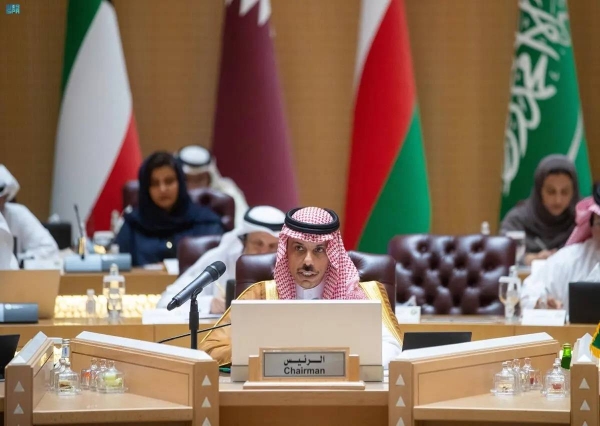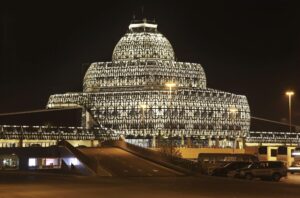GCC and Central Asian states share values, historic ties

Jeddah, The Gulf Observer: The Gulf Cooperation Council (GCC) countries and the Central Asian countries (C5) — Kazakhstan, the Kyrgyz Republic, Tajikistan, Turkmenistan and Uzbekistan — all member countries of the Organization of Islamic Cooperation, have shared values and historical ties, and possess significant oil and gas resources that qualify them to play an influential role in global energy security.
The Kingdom’s hosting of the GCC-Central Asia Summit reflects its keenness to boost existing relations, in conjunction with the GCC. It also reflects the interest of Custodian of the Two Holy Mosques King Salman and Crown Prince Mohammed bin Salman in developing relations between the GCC and C5 and increasing coordination between them on issues of common interest.
The fact that the GCC-C5 Summit is held in the Kingdom is testimony to the participating countries’ appreciation of the status of the Kingdom at the Gulf, Islamic and international levels, and their commitment to establishing a strategic partnership based on a common action plan for political and security dialogue, and economic cooperation and investment.
The first-of-its-kind summit reflects the keenness of the GCC countries, mainly Saudi Arabia, to establish partnerships with the international community to enhance the global status of the GCC.
The GCC secretary-general held the first high-level meeting with the ministers of foreign affairs of C5 countries in the Kazakh capital, Astana, on October 12, 2021; Bahraini Minister of Foreign Affairs Dr. Abdullatif bin Rashid Al-Zayani participated in it. The meeting highlighted the importance of the C5 region for GCC countries and the desire to start a strategic dialogue with it.
Participants in the high-level ministerial meeting have stressed the importance of Gulf-Central Asian countries’ relations and their aspiration to boost cooperation and coordination in areas of common interest, bolster bridges of communication and work to seize opportunities and develop processes of coordination and cooperation.
The First Ministerial Meeting of the GCC-Central Asia Strategic Dialogue was held in Riyadh on September 07, 2022. Chaired by Saudi Foreign Minister Prince Faisal bin Farhan bin Abdullah, the goal was to develop relations with a view to achieving common interests.
The ministers affirmed their commitment to establishing a strong and ambitious partnership among their countries, based on common values and interests, deep historical ties between the peoples, and the existing cooperation at bilateral and multilateral levels.
They also reaffirmed commitment to previously agreed-upon cooperation to support global economic recovery efforts and address the COVID-19 repercussions, help supply chains recover, support transportation and communication, food, energy and water security, develop green energy sources and technologies, address environmental challenges and climate change, education, and exchange of best practices and expertise in various fields, create business opportunities and support investments through appropriate business and investment mechanisms.
Moreover, the ministers underlined the relevance of the principles, goals and priorities stated in the context of Central Asian countries interaction, adopted by the heads of Central Asia states on July 21, 2022, in Cholpon Ata, Kyrgyzstan, and the GCC decision to establish cooperation with Central Asian countries.
To achieve their goals, the ministers endorsed the Joint Action Plan for Strategic Dialogue and Cooperation between Central Asian countries and the GCC States for the period 2023-2027, including political and security dialogue, economic and investment cooperation, enhancing people-to-people contacts, and developing effective partnerships between business sectors in the GCC and Central Asia. The ministers also pledged to take the measures necessary for the proper implementation of the plan at bilateral and multilateral levels.
In terms of trade, the value of exchange between the GCC and Central Asia countries amounted to $3.1 billion in 2021, about 0.27% of the total value of the GCC merchandise trade.
The value of GCC exports to Central Asia amounted to $2.06 billion in 2021, while imports amounted to $1.03 billion.
The maximum rate of merchandise exports from the GCC to Central Asia reached 0.37% in 2020, while the maximum rate of merchandise imported by the GCC reached 0.21% in 2021.
Electrical machinery and appliances constituted the major goods exported to Central Asia, at a value of $0.98 billion, about 47.6% of the total volume of goods exported by the GCC to Central Asia, which amounted to $2.06 billion.
Copper and its by-products constituted the major commodity imported from Central Asia, at a value of $0.45 billion in 2021, or about 43.7% of the total commodity imports from Central Asia, followed by gold, precious metals and stones, and iron and steel, at about 24.3% each.


